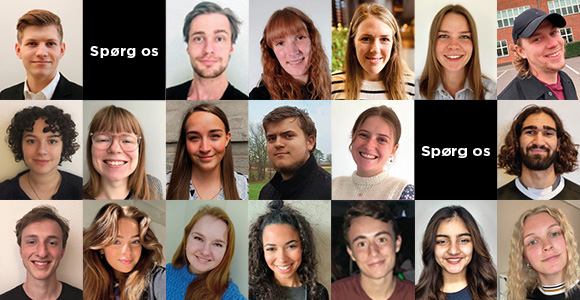Study for your BSc and MSc degrees in Medicine in Odense
If you want to study medicine, you can earn your bachelor’s degree in Odense and then study for a three-year master’s degree, also in Odense. It is also possible to study for your bachelor’s degree in Odense and earn your master’s degree in Esbjerg. To register for the graduate course in Esbjerg, you must apply via ‘Medicine in Odense – with master’s degree in Esbjerg'. You can, of course, choose to apply for both programmes if you want to increase your chances of studying Medicine.
The medical study programme at the University of Southern Denmark is unique
If you want to help and work with people, and if you have the will to learn from and about people, Medicine is perfect for you.
The medical study programme links the enormous biological knowledge with the diseases that people can be affected by. During the study programme, you will be taught a wide range of topics such as the musculoskeletal system, genetics, molecular medicine, the brain, nutrition and the circulatory system.
During the programme, you will practice and develop skills that will support your professional development as a medical doctor. During the study programme, you will be confronted with many medical case stories that you must try to solve, and you will train both communicative and practical skills in both the skills laboratory and in real life.
As a medical doctor, you will be able to prevent, diagnose and treat diseases using the latest knowledge and technological advances. You will therefore never be fully trained as a doctor, and you have an obligation to keep your knowledge up to date. Therefore, it also requires commitment and motivation for lifelong learning if you want to become a doctor. The medical degree programme at the University of Southern Denmark is the first step in this direction.
Why study Medicine?
- The medical study programme at the University of Southern Denmark is unique, partly because theory and practice are combined in a patient-oriented examination form.
- The programme is divided into shorter modules with associated examinations, making it easier to get through a large theoretical syllabus.
- The programme includes clinical stays where you are interned at a hospital or a general practitioner’s clinic, where you will meet patients and learn how to admit, examine, treat and inform them.

